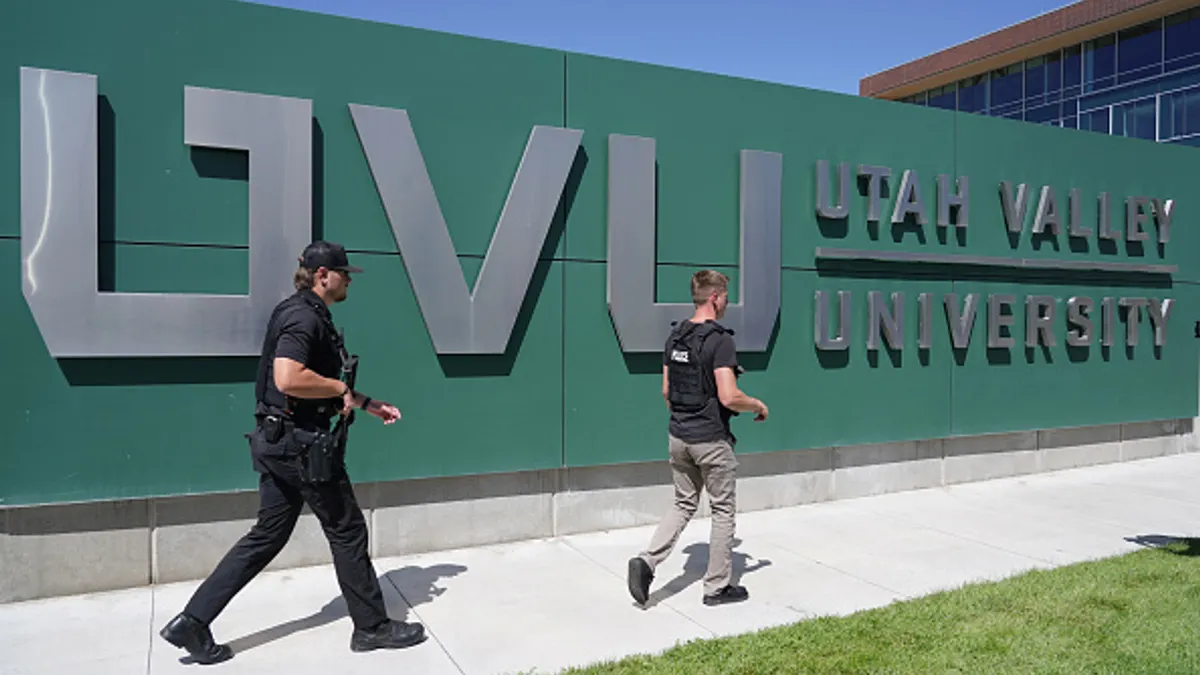In the last couple of years, when Louisville, Kentucky, found itself low on the list of desirable cities where large companies might want to set up offices, Mayor Greg Fischer had to take a hard look at the reason his bailiwick was losing out.
Turns out, this part of the country — home to Fort Knox, bourbon whiskey and a legendary derby — is woefully short of tech workers. And it's not just technology companies that are in need.
Consider these statistics: The city has just 79% of the technology jobs it should have for a metro of its size, per the mayor's office. And in the last decade, it added a mere 17,000 jobs in the professional scientific technical services, compared with neighboring Nashville that generated 75,000 such jobs, Indianapolis that added 50,000 and Cincinnati that gained 29,000, said Uric Dufrene, executive vice chancellor for academic affairs at Indiana University Southeast, citing federal data.
To make up the gap, Louisville would need to put efforts to expand its tech talent pipeline into overdrive, adding around 1,500 jobs annually for four years, based on city estimates. For help doing so, Fischer called on local schools, higher education institutions, nonprofits and employer partners.
An announcement earlier this week of the launch of LouTechWorks offers an early look at how the group is tackling the issue. Rather than tweak STEM curricula to the needs of specific employers, as is happening around the U.S., the initiative is about promoting existing technology education options to make tech a desirable career.
"To compete — and win — in the economy of the future, Louisville must greatly expand the number of technology jobs and radically scale our training platform, in partnership with employers, education partners and others," Fischer said in the announcement. He called LouTechWorks "the first step" in doing so.
Homegrown talent
LouTechWorks's website says officials are closely working with foundations and private donors to secure the funding needed, but it doesn’t name specific partners. Fischer said in the announcement that state funding is "critical" to scale technology training.
Kentucky is one of several states struggling to shore up its finances following the Great Recession. The state had just three days' worth of operating costs in its rainy day fund last year, according to data analyzed by The Pew Charitable Trusts. Overall, spending from its general fund increased by just 3% from 2008 to 2018 when adjusted for inflation, while its allocations to local governments dropped 9% for the period.
"While most states began to reinvest in themselves as the economy recovered from the Great Recession, Kentucky was one of five states to cut higher education funding last year," Fischer said in the announcement. "We need serious funding for technology in higher education," he added.
Fischer and others predict employers in the region will need to fill more jobs in software development, artificial intelligence, data analytics, data science and biomedical informatics, among other professional services jobs that need some technological background.
Colleges ready to help
Colleges and universities in the region appear ready to help. So far, six two- and four-year institutions are part of LouTechWorks: Bellarmine University, Jefferson Community and Technical College, Indiana University Southeast, Ivy Tech Community College, the University of Kentucky and the University of Louisville. They have committed to grow the number of students participating in various technology degree programs and certifications as well as expand their technology education offerings.
"It's more than clear (tech services) is an area where we can and need to really improve," said Indiana University Southeast's Dufrene.
K-12 schools are also getting involved, expanding their curriculum to include applied digital skills and making information about technology careers available to students.
Beyond Louisville
LouTechWorks is one more initiative among a slew of similar ones announced recently across the U.S.
In the Washington, D.C., metro area for instance, a partnership called the Capital CoLAB (Collaboration of Leaders in Academia and Business) brings together major employers and about a dozen colleges in the region. Together, they've developed two tech-oriented academic credentials that undergraduates can earn and use to get priority in internships and interviews with member companies.
A nonprofit called Silicon Slopes, which represents the needs of Utah's tech industry, recently launched an apprenticeship program with a state workforce development group. It also partners with colleges to develop tech-related curriculum.
And the nonprofit New York City Economic Development Corp. last fall put forward a plan to expand the region's cybersecurity industry, including through talent development with several local and state colleges.
More broadly, tech employers such as Amazon, Apple and Google are working with colleges on curricula that teaches students the skills their workers need.
A new kind of tech
LouTechWorks, meanwhile, is not focused on curriculum expansion; college officials say that happens constantly.
"We are always focused on curriculum, sure, but that’s not part of LouTechWorks," said William Hahnert, dean of Ivy Tech Community College's School of Information Technology. "The initiative is rather about showcasing to the community that there are options other than manufacturing."
What college officials are certain about is that jobs requiring the skills LouTechWorks hopes to develop aren't solely to be found in traditional technology companies.
"We don't even know of some related disciplines that are going to develop in the near future," said Thomas Harris, vice president for university relations, at the University of Kentucky. "We need to start preparing for that now, so if you had computer coding and computer-based skills they will be easier to build on for these new disciplines."
"The initiative is ... about showcasing to the community that there are options other than manufacturing."

William Hahnert
Dean, Ivy Tech Community College's School of Information Technology
In its statement, the mayor's office didn't say which businesses have signed on as partners. The LouTechWorks website says the initiative is "collaborating with our top local companies to help them hire and train more tech employees." Executives in technology, IT and human resources, the site says, would identify credentials they value when hiring. State officials at the initiative contacted by Education Dive were not available to comment.
Colleges are hopeful companies will join.
"We believe corporate partners have to be an important part of this initiative with workforce scholarships and paid internships," said Lilly Massa-McKinley, director of Bellarmine University's career development center. She added that her university's efforts to increase the number of students in tech programs — and to expand such programs through LouTechWorks — will be tuition funded.















